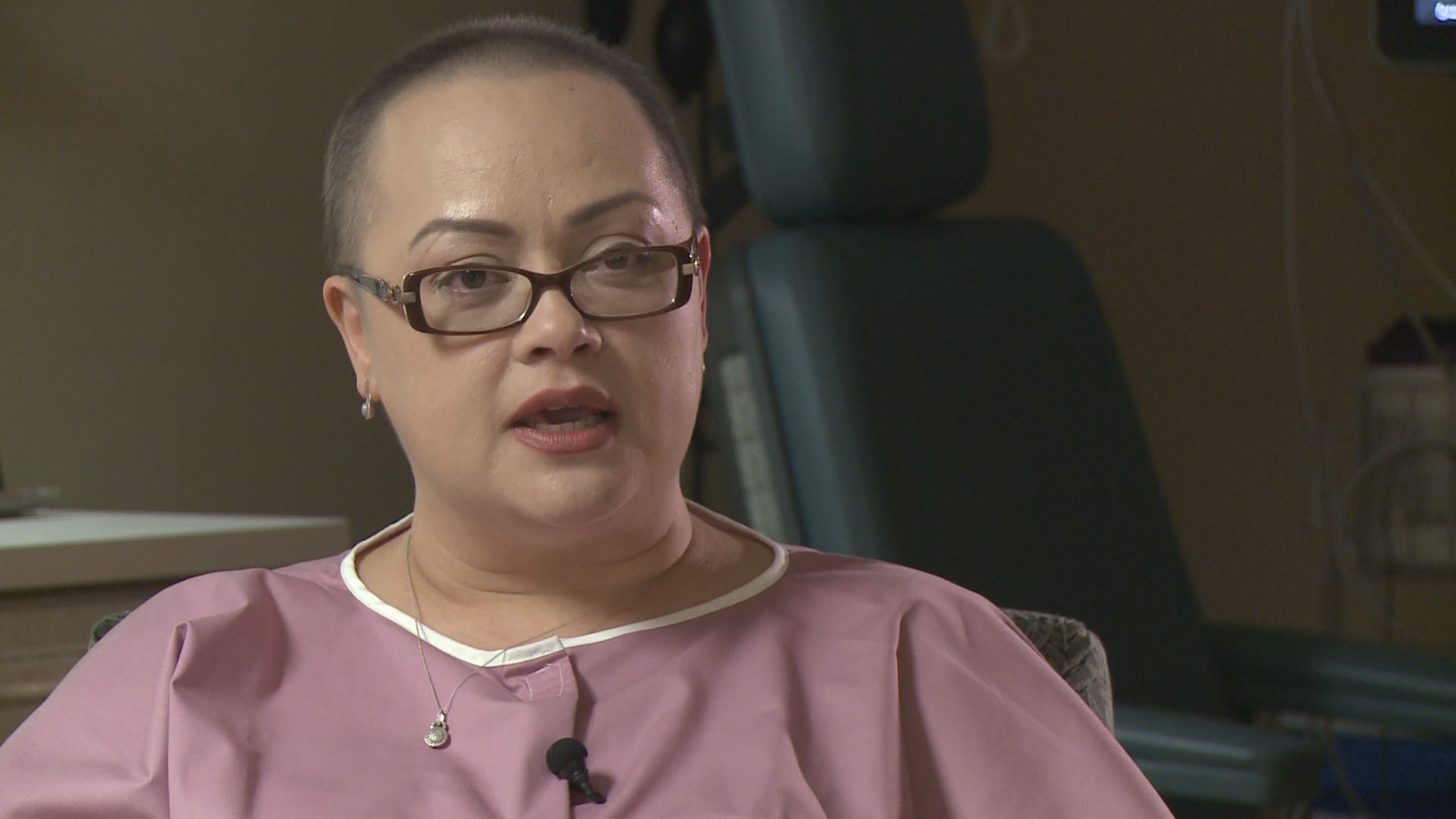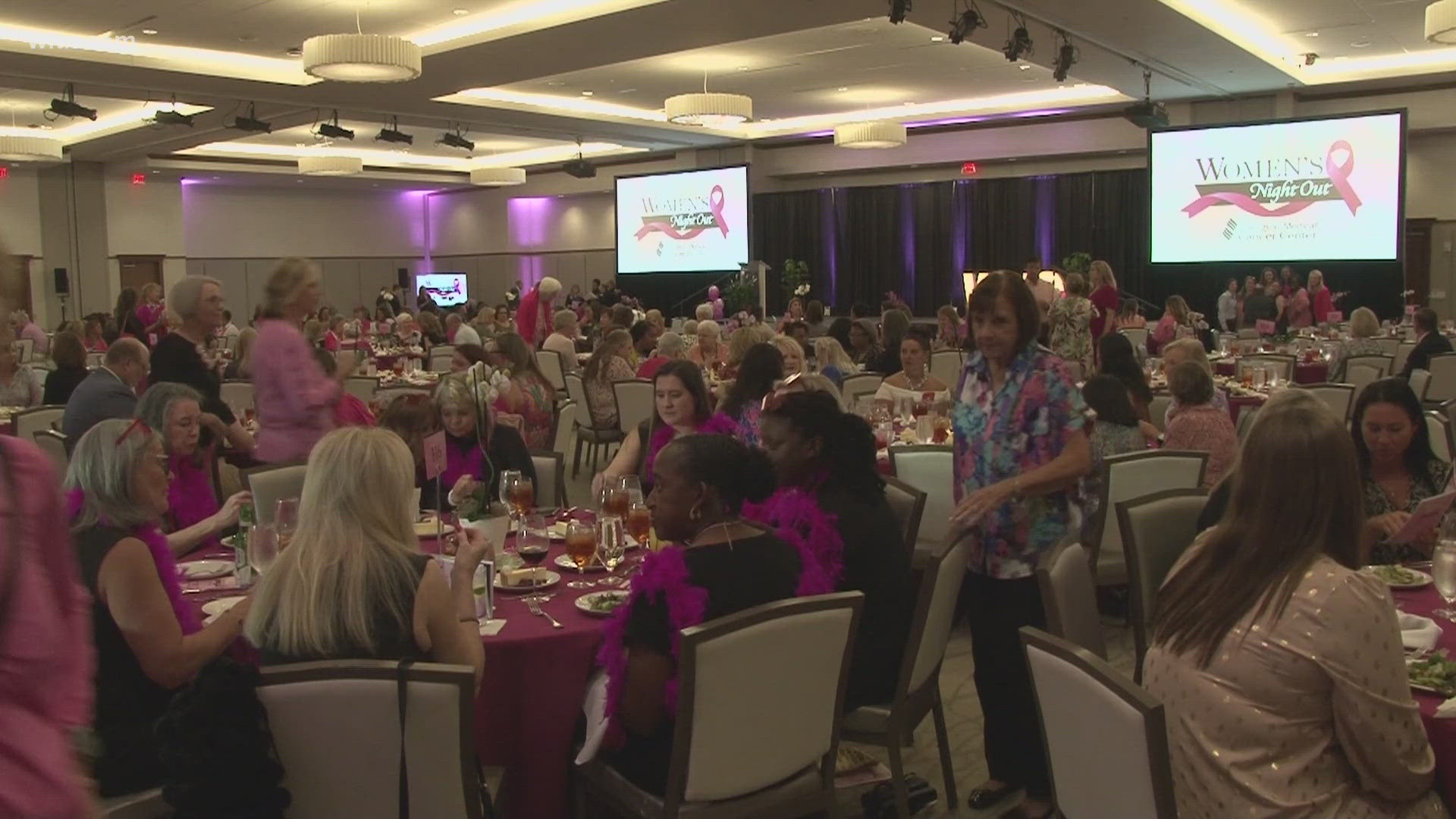Columbia, SC (WLTX)-- It's been more than 10 years since Mary Nguyen Bright filed her last report as a journalist at WLTX. As a seasoned reporter, she was known for her incredible story telling and passion for her community.
In the decade since Mary left TV news, a lot has changed in her life. Within the last six months she's been diagnosed with breast cancer and is now sharing her story with the people of the Midlands that have always meant so much to her.
Mary describes the moment she found her tumor in a blog she recently posted:
"I have cancer; specifically, Stage II Invasive Ductal Metastatic Breast Cancer.
I know. When I first heard that I had no idea what it meant either.
When I first found out, I couldn't breathe. When the doctor called me with the results of the biopsy, I was still telling myself the lump I had found was nothing. Before that phone call, I had almost convinced myself that the second lump my Primary Care Physician found was a mistake too. I told myself that we were both being overly cautious after a relative had been diagnosed with multiple cancers six months prior.
The next day, I checked myself for lumps in my breast. I found nothing and told myself, "I'm only 40 years old. I'm ok." I used to consider myself a careful person. I usually checked myself every month but once in a while I would miss a month. When I did, I would tell myself that I was fine because I was too young to worry. This wasn't something women my age needed to worry about yet.
I checked again in December and found nothing… then, life got in the way. Three months went by while I helped my husband through major shoulder surgery. I came home from work one day last March and settled onto the couch to relax after work.
We have three small dogs and usually the moment we sit down, they are in our laps. Our smallest is a mini-dachshund named Shae. That day Shae wouldn't hop up. She sat in the floor staring. I called to her again and patted my lap. Again, nothing... She just stared at me. After a moment, Shae leapt off the floor and landed on the right side of my chest. Immediately, pain shot up and down my body. My first thought was that she had a broken nail and had gouged my skin when she jumped. I scooped her up and handed her to my husband. I began feeling around for what I expected to be a scratch and there it was… the lump… and it was big.
My heart stopped.
I thought, "There's no way." It couldn't be. I was way too young for this, right? It had to be something else. How long had it been since I last checked? Only three months. It couldn't be a tumor, right? I turned to my husband and I said something to the effect of, "Sweetie, can you feel this?" I remember his smile disappearing the moment he pressed down. He said, "Honey, you need to go to the doctor… now."
Two days later, I was in with Dr. Brian Cline, my primary care physician, explaining what happened. He told me we would check everything out. He said, hopefully, he'd be able to tell me that the lump was nothing. The moment Dr. Cline pressed down, his whole demeanor changed. He got very serious and said, "I can't tell you this is nothing." He checked the right side and there it was; another lump, about the side of a marble, just below my arm pit.
A quick a nearly painless mammogram and ultrasound pointed to the worst case scenario so the doctor ordered a biopsy while I was still on the table. Dr. Cupples called with the results the next day; positive for carcinoma... every sample.
Less than a week later, my new oncologist, Dr. James Wells gave me the verdict:
Stage II Invasive Ductal Metastatic Breast Cancer… two lumps, one in my right breast and one in a right lymph node.
But what did it mean? Thankfully, Dr. Wells, cut to the chase. It was curable and he already had a plan: eight sessions of chemo, surgery and seven weeks of radiation. It sounded like a lot. It sounded like too much. Dr. Wells said the lumps were big; the one in my breast measured three cm high and five cm long. It was nearly the size of a grapefruit wedge. The one in my lymph node was like a small marble. He wanted to attack the cancer aggressively because of my age. I was pretty young for that kind of diagnosis. He also needed to make sure it wasn't anywhere else.
Suddenly, my life was in fast forward.
The next day, Friday, was a full body MRI; the day after was a PET scan. Two days later, was more than 10 hours in various doctor's offices; a root canal I was avoiding, a surgical consult and another oncology visit. I had to have the root canal to close off any open pathways for infection. Chemo would require that I minimize any chance of allowing bacteria to make its way into my body. Two days after all that, I had surgery to place a quarter-sized port in my chest so the chemotherapy drugs wouldn't destroy my veins. It was an unimaginably difficult week and we had barely begun.
Sixteen painful weeks followed; weeks where my white blood cell count dropped down to 100 causing me to be admitted to the oncology ward, weeks where the pain and exhaustion where too much too much for me to even get out of bed, weeks where the skin on my hands and feet came off in sheets. But I made it through that and then through surgery and now radiation.
Through all of that I am still one of the lucky ones. I went through the worst period of my life; it was a painful and exhausting struggle to even feel human. But if you remember what I said at the beginning, you'll see the parts of my story that make me feel lucky:
Thanks to little Shae, we found the lumps while I was still curable.
I met so many people along the way who were so much worse off; those in constant pain suffering from terminal cases, those in wheel chairs and using walkers and canes to get around. A week before I began chemo, while still upset and stressed about what chemo would mean to me; I met a stranger who told me she had, "been going through chemo for two years and I'm still here." It was right then that I realized, with only eight sessions of chemo, I had nothing to complain about.
I had the best doctors and nurses I could have hoped for.
From my primary care physician, Dr. Brian Cline, to my oncologist, Dr. James Wells, to my radiological oncologist, Dr. Quillin Davis and all the other doctors, nurses and techs in between, I was treated like family. They got to know me on a personal level; I was not just my symptoms or my disease. I was a person they cared for as if I was family. They kept me smiling and hopeful at every step.
I was granted time off when I needed it.
My co-workers and friends who worked for state agencies and even perfect strangers allowed me to take time off to heal and get stronger. Because DHEC and other state government agencies participate in the Leave Pool program, leave donated from other state employees allowed me to go through the treatments, to heal and to stay strong.
I was blessed enough to have insurance.
Cancer treatment isn't cheap; multiple surgeries, chemo drugs, medication, radiation therapy and I'm still facing five years of a daily medication called Taxoifen that will help prevent my cancer from returning. But I have insurance and we've managed to pay off most of our bills. I've met so many women who told me they put off getting mammograms because they can't afford it. They don't have insurance or they don't have enough to cover a mammogram. I've told every one of them… Don't wait! There are resources like DHEC's Best Chance Network that can provide services for men and women who qualify for free screenings. http://www.scdhec.gov/Health/DiseasesandConditions/Cancer/FreeCancerScreenings/
I have felt so much love and support from so many.
My husband, my family, my friends… I know they would all be there for me through this terrible, terrible disease and treatment. What I didn't know is how many people, complete strangers, who stop me in the street and offer me their prayers and well wishes.
I am lucky. I am.
I am lucky to still be here to tell each of you that you don't have to go through what I did. Be careful. Check yourselves and check your loved ones. Do it early and often. It's treatable and best to find it early.
If you are diagnosed, don't lose hope. Breast cancer isn't an automatic death sentence. We can beat it… and if you're diagnosed, remember that you are not alone."
Doctors credit early detection as one of the keys to saving Mary's life. You can see more of her story by clicking on the video above.
We encourage you to sign up for Buddy Call19 at www.wltx.com.


